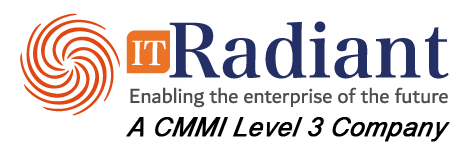
In today’s rapidly evolving business landscape, organizations across various industries are turning to SAP implementation services to streamline their operations, enhance efficiency, and stay ahead of the competition. For retail and pharmaceutical companies, in particular, the implementation of SAP solutions holds immense potential to optimize processes, improve customer experiences, and drive growth. In this blog post, we’ll explore the key stages in the SAP implementation journey tailored to the unique needs of the retail and pharma sectors.
1. Understanding Business Requirements:
In the first stage of the SAP implementation journey, businesses often seek guidance from SAP implementation partners for a comprehensive analysis of the organization’s business requirements. For retail companies, this may include inventory management, supply chain optimization, omnichannel sales, and customer relationship management.
In the pharmaceutical industry, key requirements may revolve around regulatory compliance, product lifecycle management, and quality control. By clearly defining these requirements, businesses can align their SAP implementation strategy with their overarching goals and objectives by leveraging professional SAP implementation services.
2. Solution Selection:
When identifying the business requirements, the next step is to choose the most appropriate SAP solution tailored to the specific needs of the retail or pharma industry. SAP offers a range of industry-specific solutions, such as SAP for Retail and SAP for Pharma, designed to address the unique challenges and opportunities within each sector. Retailers may opt for solutions that enable real-time inventory visibility, seamless omnichannel integration, and personalized customer experiences. Meanwhile, pharmaceutical companies may prioritize solutions that ensure compliance with regulatory standards, streamline product development processes, and enhance traceability across the supply chain. Businesses often collaborate with SAP implementation partners to ensure alignment with industry-specific needs during this selection process.
3. Customization and Configuration:
During the customization stage, businesses may enlist the expertise of a SAP implementation consultant to fine-tune modules and workflows. This involves fine-tuning various modules, workflows, and functionalities to align with the organization’s processes and workflows. Effective SAP retail implementation involves configuring pricing strategies and loyalty programs to drive customer engagement. For pharma companies, customization may focus on implementing robust quality management systems, batch tracking capabilities, and pharmacovigilance processes to ensure product safety and compliance.
4. Data Migration and Integration:
Data migration is a critical stage in the SAP implementation journey, especially for businesses with legacy systems and large volumes of data. Retailers need to migrate product data, customer information, sales records, and inventory details seamlessly into the new SAP environment. Similarly, pharmaceutical companies must ensure the accurate transfer of product specifications, regulatory documentation, clinical trial data, and adverse event reports. Additionally, integration with existing systems and third-party applications are essential to enable data flow and interoperability across the organization’s ecosystem. Businesses can leverage professional SAP implementation services to streamline data migration and integration processes effectively.
5. Training and Change Management:
Successful SAP implementation goes beyond technology; it also requires effective change management and user adoption. Training programs should be developed to equip employees with the knowledge and skills needed to leverage the new SAP system effectively. Retail staff may require training in point-of-sale systems, order management processes, and customer service functionalities. In the pharma industry, training may focus on compliance requirements, laboratory information management systems (LIMS), and adverse event reporting protocols. Clear communication, stakeholder engagement, and ongoing support are essential to facilitate a smooth transition and minimize resistance to change.
In conclusion, the SAP implementation journey for retail and pharmaceutical industries encompasses several key stages, each crucial for achieving business transformation and success. By understanding their unique requirements, selecting the right SAP solution, customizing, and configuring the system, migrating data seamlessly, and investing in training and change management, organizations can unlock the full potential of SAP to drive innovation, efficiency, and growth in their respective sectors.
By navigating these key stages effectively, retail and pharma companies can position themselves for long-term success in today’s dynamic and competitive business landscape.
